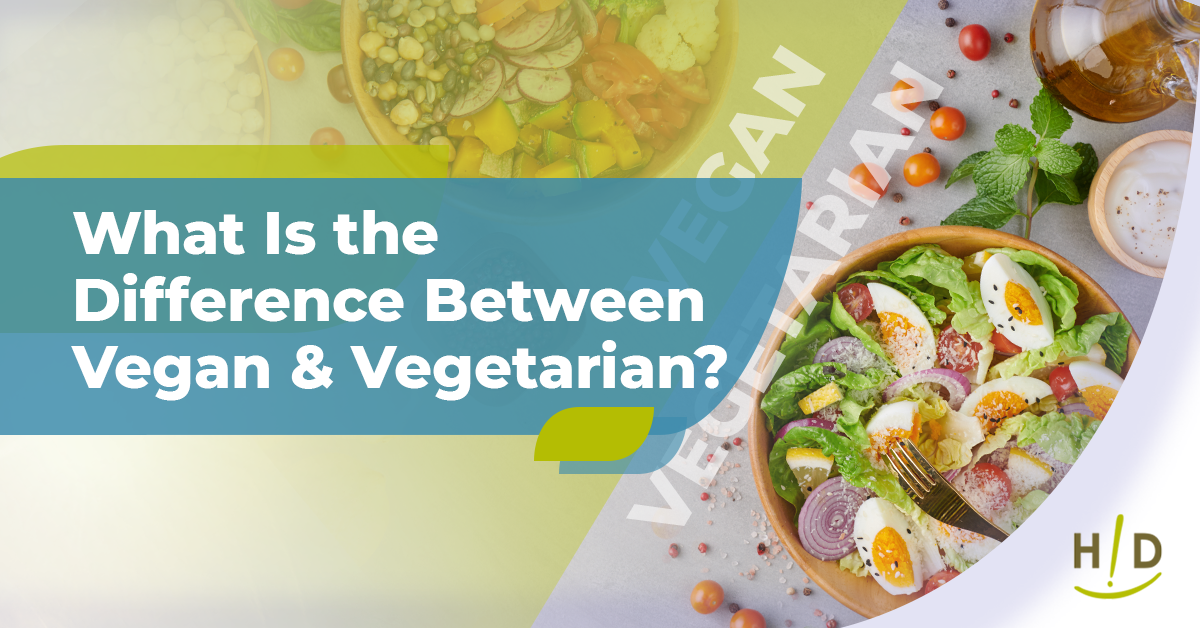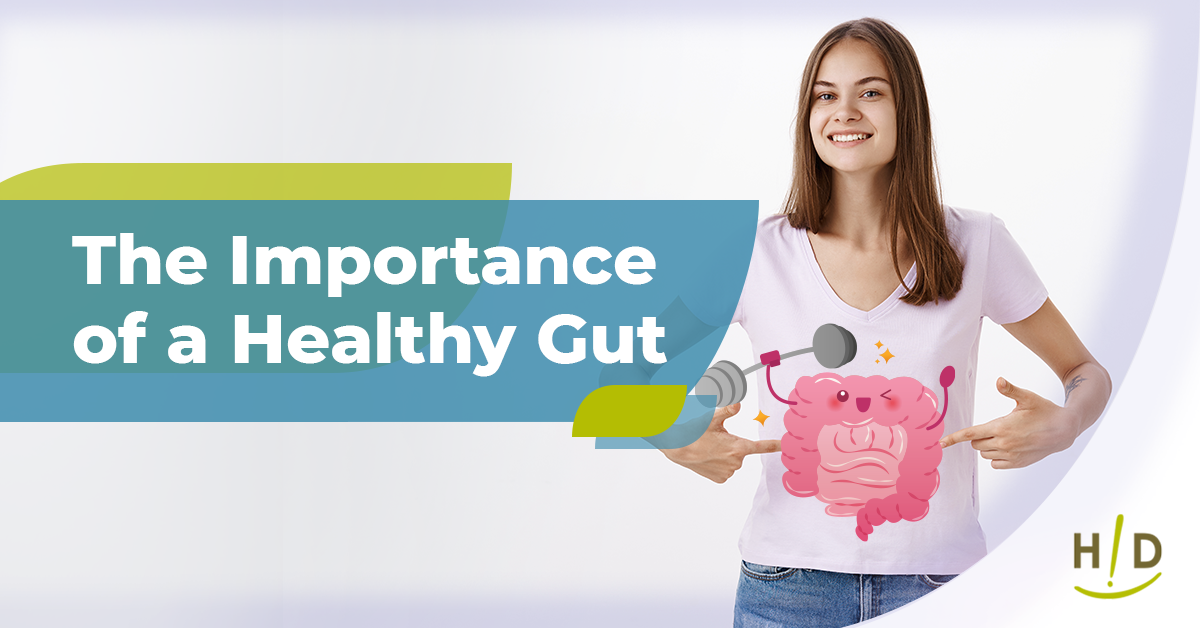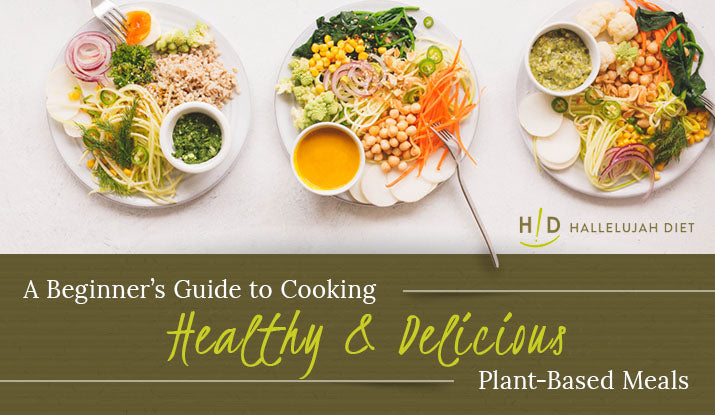For people not following a vegetarian or vegan diet, the difference between the two can seem a little confusing. Everyone knows that neither diet includes meat sourced from animals, but what about brownies, yogurt, or pizza? And how many people know about all the different variations of vegetarianism? Or even what it means to follow a plant-based diet? Following these diets takes plenty of research and careful planning, but understanding their differences is pretty straightforward.


The Core Difference
Vegans consume no animal products at all, while vegetarians don’t eat animal flesh. However, vegetarians may eat products that animals produce (such as dairy and eggs). People typically choose these diets due to health concerns, religious restrictions, or moral or ethical concerns about harming animals. Although all vegans tend to follow the same set of clear-cut guidelines—eat nothing that came from or harmed an animal—there are a few different types of vegetarian diets.
What Is a Vegetarian Diet?
According to the Vegetarian Society, “Vegetarians don’t eat any fish, meat or chicken” and also “don’t eat products or by-products of slaughter.” Vegetarian diets may contain variable amounts of vegetables, fruits, whole grains, beans, nuts, and seeds. Dairy and eggs may be included, depending on the type of diet you follow. The most common types of vegetarians include:- Lacto-ovo vegetarians: Avoid all animal flesh, but do consume dairy and egg products.
- Lacto vegetarians: Avoid animal flesh and eggs, but do consume dairy products.
- Ovo vegetarians: Avoid all animal products except eggs.
- Vegans: Avoid all animal and animal-derived products.
- Pesco: Pescatarians, while not technically meeting the common definition of vegetarian, follow a semi-vegetarian diet that includes fish and other seafood but no poultry or meat.
- Flexitarians: Part-time vegetarians do eat animal flesh and, although primarily plant-based, they technically do not fall under the definition of vegetarianism
- Demi Vegetarian: Consumes fish, eggs, and dairy products but not meat.
- Semi Vegetarian: Another group of vegetarians who sometimes voluntarily control their meat intake and who may be viewed as flexitarians.
What Is a Vegan Diet?
Veganism is currently defined by the Vegan Society as “a way of living which seeks to exclude, as far as is possible and practicable, all forms of exploitation of, and cruelty to, animals for food, clothing or any other purpose.” Since this is the strictest form of vegetarianism, a vegan or plant based diet not only excludes animal flesh but also any animal-derived ingredients, as well as dairy and eggs. These products include gelatin, , carmine, pepsin, shellac, albumin, whey, casein, among others. Vegans consciously choose to avoid all animal by-products because they believe not only that this has the largest impact on their health and the environment but also because they seek to avoid all forms of animal exploitation and harm.Types of Vegans
Vegans may be categorized into different types:- Ethical Vegans are the most common and put their ethics first. They respect and care for animals and the environment. Ethical vegans do not consume any dairy product, whether it is animal milk or cheese made from animal milk. They also avoid eggs and honey, as well as the use of any product made from animal skin or parts.
- Plant-Based Vegans follow diets based on plant foods only.
- Raw-Food Vegans do not eat any animal by-product or anything cooked above the temperature of 115-degree Fahrenheit. It is believed that this causes food to lose its nutrients and enzymes.
Nutrition Considerations for Vegetarian and Vegan Diets
Research shows vegetarian and vegan diets tend to be low in saturated fat and cholesterol. For vegetarians, scientists have found that well-planned vegetarian diets are appropriate for individuals during all stages of the life cycle, including pregnancy, lactation, infancy, childhood, and adolescence, and for athletes. Even excluding the animal food sources cited in the literature, vegan and vegetarian diets both tend to contain adequately high amounts of vitamins, minerals, and fiber, as well as healthy plant compounds and nutrient-dense foods. On the other hand, poorly planned diets of both vegetarians and vegans (as well as anyone) could result in low intakes of some nutrients, particularly iron, calcium, zinc, and vitamin D. Both diets also tend to contain limited amounts of long-chain omega-3 fatty acids and vitamin B12, although levels of these nutrients are generally lower in vegans than vegetarians. This makes it necessary to take vitamin B12 either as a supplement or through fortified foods.Which Is Healthier?
Both vegetarian and vegan diets can be considered appropriate for everyone, as long as the diet is well planned. However, as mentioned above, following either diet could result in deficiencies, and this can negatively impact various aspects of health, not only physical health but also mental health. Because they may consume animal products, studies show that vegetarians tend to consume slightly more calcium and vitamin B12 than vegans. Nonetheless, both vegetarians and vegans should pay special attention to nutrition strategies meant to increase the absorption of nutrients from plant foods. Vegetarians and vegans should strongly consider analyzing their daily nutrient intake, getting their blood nutrient levels measured and taking supplements accordingly. It may also be necessary for both groups to consume fortified foods and supplements, especially for nutrients such as iron, calcium, omega-3, and vitamins D and B12. Winston Craig, Professor of Nutrition at Andrews University, states: “Unless vegans regularly consume foods that are fortified with these nutrients, appropriate supplements should be consumed. In some cases, iron and zinc status of vegans may also be of concern because of the limited bioavailability of these minerals.” In the few studies directly comparing vegetarian to vegan diets, it is reported that vegans may have a somewhat lower risk of developing type 2 diabetes, heart disease, and various types of cancer than vegetarians. Also, vegans tend to have a lower body mass index (BMI) than vegetarians and seem to gain less weight as they age.Veganism Is About More Than What You Eat
Although vegetarians and vegans may choose to avoid animal products for similar reasons, for vegans this choice often extends beyond diet. As a result, veganism is often considered a lifestyle strongly anchored in animal rights. For this reason, many vegans may also:- Avoid purchasing clothing items containing silk, wool, leather, or suede.
- Boycott companies that test on animals and only purchase cosmetics that are free of animal by-products.
- Steer clear of circuses, zoos, rodeos, horse races, and any other activities involving the use of animals for entertainment.








